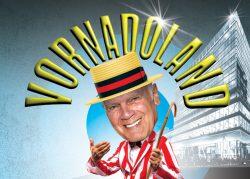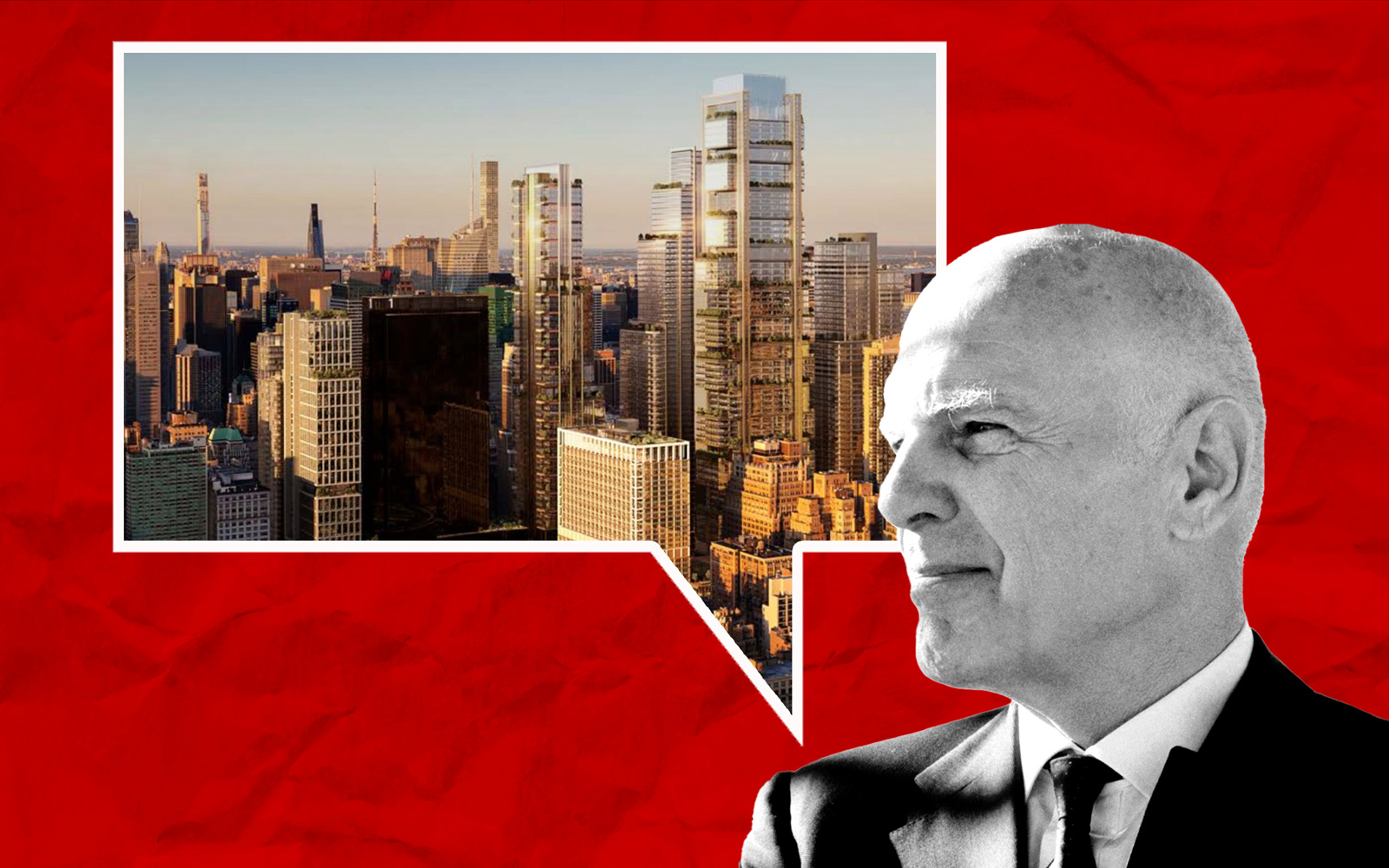For months, Vornado Realty Trust CEO Steve Roth has spoken ominously about new development, casting a pall over plans for massive development in the Penn District.
But on Tuesday, Roth again insisted that the real estate investment trust had not abandoned the project and revealed that he expects to begin with an apartment building.
“We’re gonna take a breath,” Roth said in response to an analyst question about Penn during the company’s first-quarter earnings call. “The prospect of doing ground-up development — we will likely start with an apartment project.”
He did not provide details, including if he were referring to one of the eight development sites selected by the state for a Hudson Yards–sized project. He indicated that the company is still in the planning stages.
The state’s blueprint, which has faced mounting scrutiny and waning support from key lawmakers, requires 1,172 apartments, 352 of which would be affordable, with another 108 set aside as supportive housing.
Another 626 units could be added on other sites, and even more are expected to be added to state-owned development sites nearby, though those are not part of the state’s general project plan for the area around Penn Station. The 18 million-square-foot development, for now, largely consists of office space.
Vornado controls most of the project’s eight sites, including “site 4” on Eighth Avenue between West 33rd and West 34th streets. Last year, state officials changed the plan to require housing on that site in response to pressure from community members. It is not clear if Roth was referring to that site.
The company is in the process of demolishing the Hotel Penn at 401 Seventh Avenue, but still plans to build an office tower there, according to earnings filings.
Roth called the project’s future into question in November, when he said “headwinds and the current environment are not at all conducive to ground-up development.” He later acknowledged that the company is pausing such development, but maintained that Vornado remains committed to Penn, even as the Hochul administration indicated that it was exploring alternatives.
On Tuesday’s call, Roth said any assumption that Vornado is stopping work in the Penn District is “just plain silly.” Still, he would not specify what the REIT’s ultimate role will be in the state’s plans.
Roth, while struggling with equipment he was using to participate in the earnings call remotely, also stressed his confidence that people will return to the office en masse.
“I think it is very clear that employers want their employees back in the office,” Roth said. “I think that over time, five or seven years, we will go back to what we considered normal.”
Office landlords used to express such predictions in terms of months.
Other Vornado executives on the call touted the strength of leasing activity in new, high-end offices but acknowledged that “concessions remain stubbornly high.”
Much of the call focused on Vornado’s decision last week to suspend dividends this year. Roth kicked off the call by agreeing that dividends are “sacred” — well, sacred-ish.
Roth specified Tuesday that dividends would be paid, either as cash or script dividends, during the fourth quarter after taxable income is calculated. REITs are required to pay out 90 percent of their taxable income to shareholders each year.
Roth blamed the dip in Vornado’s income on interest rates. The company is planning a $200 million stock buyback, funded in part by the sale of yet-to-be announced assets. Though he has resisted buyback programs in the past, Roth said he changed his mind because of the 35 percent drop in the firm’s stock price since last quarter, “from a low level to an even lower level.”
“We’re going on the offense,” he said.
In the first quarter, Vornado’s funds from operations per share were $.60 on an as-adjusted basis, down from $.79 for the same period last year and just below the average Wall Street forecast of $.62, according to Zacks Investment Research.
The company posted $445.9 million in revenue, up from the previous year’s $442.1 million. Net income for the quarter was $5.2 million or $.03 per share, compared with $26.5 million or $.14 per share in the same quarter last year.
The REIT has had a rough few months. Its stock was yanked from the S&P 500 on Jan. 4 because the firm had become “more representative of the midcap market space,” according to the index.
The company then wrote down the value of its real estate portfolio by $600 million, 80 percent of which was attributed to seven Midtown properties with street-level retail. The REIT is also still trying to work out an agreement with its lender on a $450 million loan tied to 697-703 Fifth Avenue it defaulted on in December.
Read more



